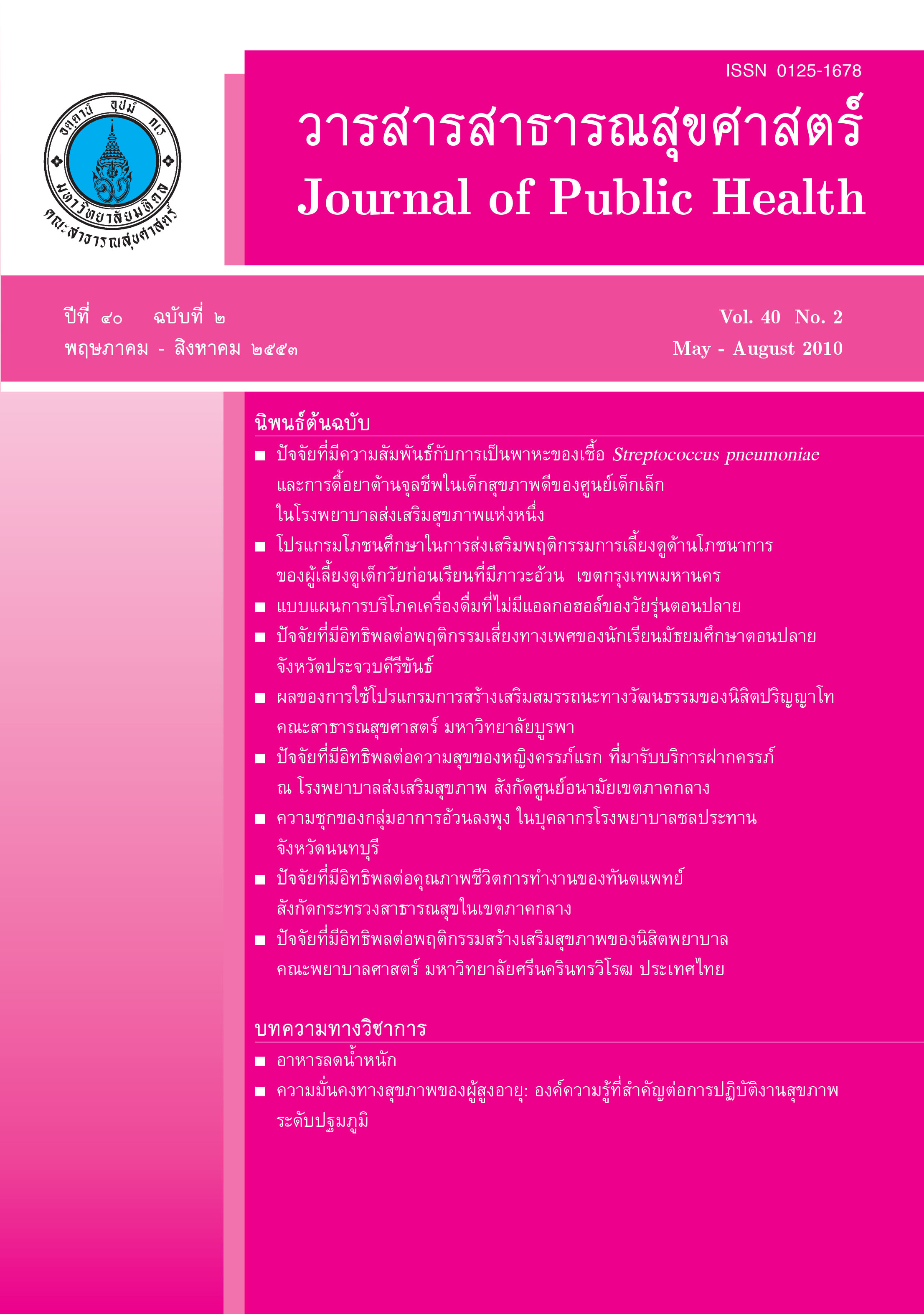ปัจจัยที่มีอิทธิพลต่อพฤติกรรมเสี่ยงทางเพศ ของนักเรียนมัธยมศึกษาตอนปลาย จังหวัดประจวบคีรีขันธ์
Keywords:
sexual risk-taking behaviors, parental monitoring, inappropriate behavior, high school student, พฤติกรรมเสี่ยงทางเพศ, การดูแลของพ่อแม่, พฤติกรรมไม่พึงประสงค์, มัธยมศึกษาตอนปลายAbstract
ABSTRACT
The objective of this cross-sectional survey research was to study the factors influencing sexual risk-taking behavior among high school students, Prachuapkhirikhan province. Data collection was carried out by self-administered questionnaire from August to September 2009. The sample consisted of 567 students from Mathayomsuksa 4-6. Data were analyzed using Chi-square test and Binary Logistic Regression analysis. The result by Chi-square test revealed that the factors associated with sexual risk-taking behaviors with a statistical significance (p-value < 0.05) were sex, age, level of education, personal expense per month, person whom living with, sexual value, perception of gender role, inappropriate behavior of students, parental monitoring, the relationship between adolescence and family, communication about sex in family, inappropriate behavior of peer group, brothels, assemble for drugs and complex in community. The variables significantly associated with sexual risk-taking behaviors of students when analyzed by Binary Logistic Regression analysis, the results showed that the factors influencing sexual risk-taking behaviors are inappropriate behavior of students (OR = 3.4, 95% CI = 1.84-6.42), age (OR = 2.8, 95% CI = 1.28-5.92), inappropriate behavior of peer group (OR = 2.5, 95% CI = 1.41-4.59) and sexual value (OR = 2.4, 95% CI = 1.49-3.92). This study suggested that promoting appropriate sexual value and communication about sex in family, relationship in the family, monitoring inappropriate behaviors of students are important methods to decreasing sexual risk-taking behavior among students.
Key words: sexual risk-taking behaviors, parental monitoring, inappropriate behavior, high school student
Downloads
Issue
Section
License
Creative Commons License CC-BY-ND


